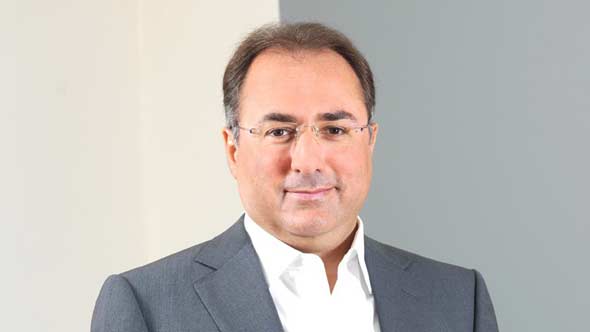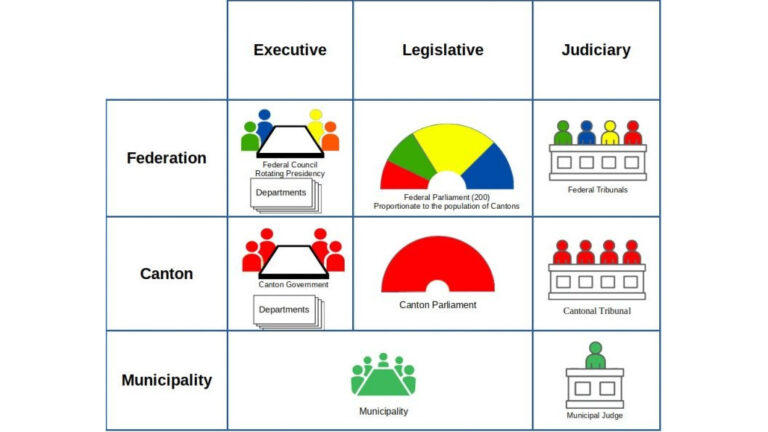Lebanon is a consensual confessional democracy with an open (but opaquely monopolistic) crony-capitalistic economic regime currently facing economic challenges in a “degraded” macro-fiscal environment. The Lebanese system is in dire need for reform. These reforms have been delayed for decades. Herein is an attempt to use the concepts detailed in the Prospect Theory to try to explain why the Lebanese political elite is constantly delaying structural reforms. This framework could also help us understand how a) the fundamentally diverging interests between the economic elite and the general public/taxpayers and b) the substantial conflict of interest between the political elite and general public/taxpayers have far reaching consequences on the country’s development (or in this case outright regression).
The players and their interests
This framework identifies three players: The economic elite, the general public and the political elite. In the Lebanese context, but more generally in any capitalist economy, we can consider the economic elite as the “equity owners” of the economy (owners of banks, companies, conglomerates, etc.). This class (the economic elite) benefits fully from the upside of a prosperous economic environment and would (should) have the most to lose in a downside situation. The general public/taxpayers have a dual hat: they are the suppliers of labor in the system but also funders thereof. Their risk profile is more akin to “Lenders/depositors” with limited upside (some additional income in the form of bonuses in good times) but a more protected downside (a reduced salary in difficult times). The political elite is the “regulator” of the system, theoretically ensuring fairness and transparency as well as optimal wealth distribution and proper peaceful governance.
As in any capitalistic economy, the equity owners (economic elite) have diverging interests and conflicting views from the lenders (the general public). In the Lebanese context, the economic elite, is in collusion with the political elite to ensure monopolistic situations and extract super-profit out of the economy. The common objective of this class is to modify the wealth distribution equation in its favor. Because of this profound (and unlawful) alignment of interest, one could consider that the economic elite and the political elite are one and the same class, sometimes referred to herein as the governing elite.
Decision making and reforms
It is a prerogative and the responsibility of the political elite to lead a country and make decision especially in times of duress and through difficult socio-economic times. Leadership is needed to decide on important matters that touch the lives of the general public including devaluation, soft or hard landing, crisis management process, tax increase, fiscal reforms, economic reforms, haircut on deposit, government debt restructuring, etc….. It is in this context that we are applying Prospect Theory concepts to predict or analyze governing elite decision- making. Under the Prospect Theory approach, the political elite will have to choose the pattern of risk attitude (the safer route or the riskier route). Needless to remind ourselves that the implied assumption is that the political elite is supposed to act for and on behalf of the general public. It has a fiduciary duty towards the general public by whom it has been mandated. Given that the political elite is itself the economic elite, raises the dilemma facing crucial macro-fiscal decisions: will the political elite decide as per their mandate i.e. as per the requirement of the general public or will the governing elite decide as per its vested interest i.e. like the economic elite?
Prospect Theory
Prospect Theory describes the way people choose between alternatives that involve uncertainty and/or risk. The theory states that people make decisions based on the potential value of losses and gains. To illustrate and frame our approach let us consider the two situations: First a winning dilemma and Second a loss dilemma. In first case, an economic agent has to choose between a) winning $950 for sure (i.e. 100% probability of winning $950 and 0% probability of winning $0, this is referred to as Certainty Effect) versus b) 95% chance of winning $1,000 (and hence 5% chance of winning $0. Referred to as Possibility Effect)! Mathematically both options have the same expected outcome. In reality, economic agents usually choose Certainty Effect i.e. to take the sure win ($950) over the Possibility Effect -is the riskier option- which is to go after the potential higher win (possibility to win $1,000). In a profit making environment, choosing option a) Certainty Effect over option b) Possibility Effect reflects the risk-averse behavior of economic agents. Now consider the losing bet or a bet in a loss making environment. The economic agent has to choose between a) losing $950 for sure (i.e. 100% probability of losing $950 and 0% probability of losing $0, Certainty Effect) versus b) 95% chance of losing $1,000 and 5% losing $0 (Possibility Effect). In a loss facing situation economic agent usually choose second option i.e. Possibility Effect taking the risk to lose more just to avoid the certainty of the loss. In a loss making environment, the economic agent goes for the riskier bet. He becomes risk-seeking and is no longer risk-averse.
The political elite dilemma
In a loss making economic environment, with tough macro-fiscal choices to be made, which decisions the political elite is likely to make and in whose best interest will they be made. The political elite dilemma could be spelled out as follows a) reform i.e. take a loss -Certainty Effect- (bank’s equity wiped out, loss of income for politicians and political parties from waste management and fuel import, loss of ministerial power over the economy due to reforms and introduction of governance bodies, loss of overall influence due to localism and municipal and local government empowerment, etc…) but at the same time ensure sound revival of the economy and brighter future for the next generations. This would be the “safer” bet as described by the Prospect Theory with a certainty of loss for the governing elite but better future for the general public. The alternative prospect being b) delay reforms which means hugely degrading public accounts and economic situation even further but avoiding to crystallize the losses of the “equity owners” while hoping that some exogenous event (Syria economy, oil and gas findings, etc…) will save the situation (Possibility Effect). The choice to avoid and/or delay reform is akin to taking the riskier bet as described by the Prospect Theory pattern of risk attitudes.
What will the political elite decide? Take the safest bet as per the general public best interest (cut an arm and build a better future) or consider its personal interest as an economic elite and double down on the risk in a “fuite en avant” kicking the can down the road for another year or two or ten to avoid crystallizing their personal losses while degrading the economy and exposing the general public to harder future environment? Applying the above Prospect Theory, and its universe of patterns of risk attitudes, one can conclude that the political elite (as an economical elite) will be driven into a risk-seeking prospect to try and save their interests at the expense of the best interest of the general public. The political elite is naturally driven towards taking the riskier bet (at the expense of the general public) just in order to avoid crystallizing its losses. While the general public would naturally want to take on the safest bet which is to reform and take a limited hit for a brighter future.
Comfortably numb
The current environment/dilemma is about decisions to minimize losses, we are in the “loss” leg of the Prospect Theory, with the political elite making decisions in uncertain environment. Conceptually, the “equity owners” (economic elite) would be the biggest losers of any “reforms” decision. This statement must be considered in conjunction with the following two important caveats a) due to its collusion with the political elite, the economic elite managed over the past 40 years, to accumulate abnormal wealth mainly via the establishment of business silos and de facto monopolies across virtually all the industry sectors. Such wealth is presumably outside of the country and would not be theoretically captured by the “reform” decision; and b) the governing elite enjoys disruptive powers to distort the economics rules and the judicial system to fraudulently reallocate the foreseeable losses to be borne by the various economic actors, minimizing losses on the ruling elite and overburdening the general public. These two features further alter the risk profile of the governing elite to exacerbate its risk-seeking attitude. Having no real skin in the game makes the political elite becomes virtually careless of the losses. With their savings out of reach of the reforms-induced losses and being able to re-allocate any losses to its advantage, the governing elite becomes disconcerted with additional risk in the system. Ballooning sovereign debt, stagnating growth, soaring unemployment are of marginal impact on the governing elite. Further Delaying reforms comes at the expense of further degradation of the economy and promises even more painful adjustments for the general public. The conflicted nature of the political elite and the fact that it is at the same time the economic elite makes it totally inapt to decide in the best interest of its constituencies.
The general public, has a totally different risk profile. The general public is inherently driven towards the safer bet (reforms today -albeit painful- and a more sound economy going forward). The best interest of the general public is to see “reforms” (referred to as “collapse” which the political elite -controlling the narrative and the semantics- so as to instill fear). General public favors a painful but limited loss (say 20 or 30% of assets and income from a devaluation and cut on deposits) for a healthier economy and medium term growth and a better environment for future generations.
The banking sector example
Let us take the banking sector. With economic elite as “bank equity owners” and general public as “depositors”. The economic/political elite has had the opportunity to gather and shelter wealth away from the reach of the “reforms” outside of the country. It is likely that dividend distributions of several billions of dollars are now parked in offshore safe havens. The governing elite’s only exposure is the “surplus” or “residual” wealth. This elite would favor delaying reforms to avoid the certainty of the loss (Possibility Effect) even if this means worsening the overall economic metrics and degrading the situation. The governing elite is in a risk-seeking mode hoping to avoid losses and hence constantly rejecting favorable outcomes or settlements. The general public, on the other hand, are better off with reforms now even if this entails taking an economic hit today of say 30% and a few years of pain. The general public is fully exposed to the magnitude of the reform. The general public has not had the chance to shelter previously earned gains away from the “reform” impact. As such general public is fearful of larger loss and hence accepts unfavorable -but capped- losses (Certainty Effect) today in exchange of a brighter future.



